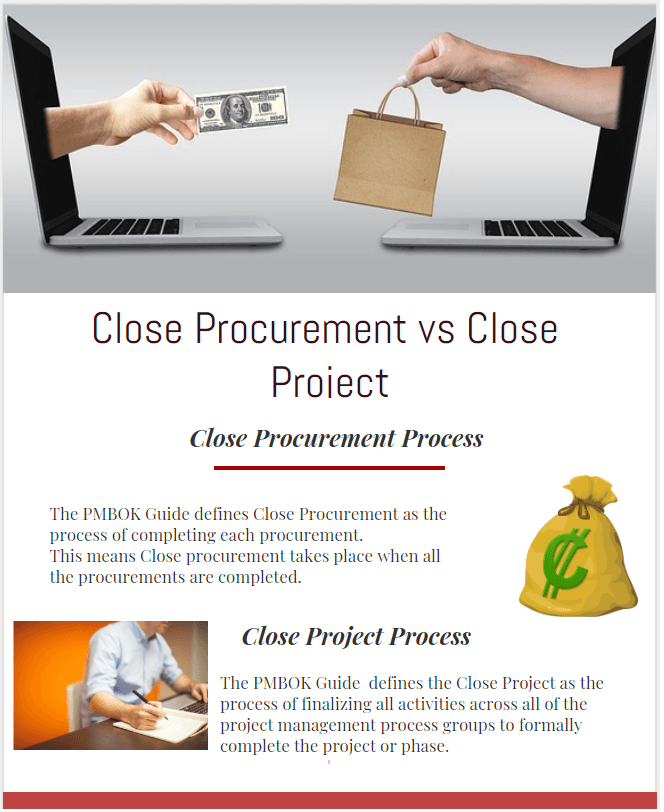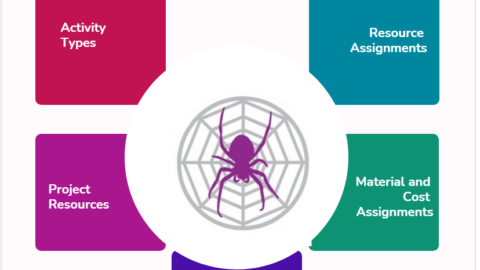Close Procurement vs Close Project
Close Procurement vs Close Project – Procurement is the operation of planning, tendering, purchasing goods, materials and/or services from an outer source. Project procurement management is the act of acquiring resources, goods, materials, and services required to complete the project on time and budget. Basically, project procurement management involves plan, conduct, control, and close procurements processes.
Table of Contents
Close Procurement and Close Project are two different concepts in Project procurement management. Simply put, close procurement is the process of completing the all project procurements to support the close project phase. On the other hand, close project is the process of finalizing everything. Although both concepts are easy to understand, many PMP aspirants ask the differences between them on forums. In this post, we will review the topic; Close Procurement and Close Project and clarify the differences between them for the PMP certification training.
Close Procurement and Close Project
Close Procurement Process
The PMBOK Guide defines Close Procurement as the process of completing each procurement. This means close procurement takes place when all the procurements are completed. Close procurement process supports the project or the contract closure. Procurements are closed when the contract reaches its deadline or when the contract is terminated. The process must be performed for each procurement contract.
Close Procurement Process provides feedbacks for future projects by documenting all the necessary documentation and agreements related to procurement. A well done Close Procurement Process can be instructive for creating claims and/or solving claim problems and confusions.
For example, you are a project manager of a hospital project and you assigned a contractor for the electrical systems. The contractor completed all the tasks in the contract. Then you accepted the work and release him by paying the agreed amount of money so the contractor’ s procurement is closed.
Close Project Process
The PMBOK Guide defines the Close Project as the process of finalizing all activities across all of the project management process groups to formally complete the project or phase.
Simply put when all the deliverables are accepted and the project scope is completed the close project process is performed. Therefore close procurement process must be completed in order to complete the project.
In briefly, Project Closing Process is the completion of the below processes;
– Completion of all the scope of work.
– Completion of all the project management processes
– Formal agreement of completion of the project.
Keystones
- The close procurement process takes place before the close project process is completed.
- Many close procurement processes occur during the life cycle of a project. However, there will be only one close project process.
Summary
Close procurement and close project terms sound quite similar. Close procurement processes don’t just happen at the end of a project. They can happen many times before the completion of the project but the close project process will be performed only once at the end of the project. However, close procurement process must be completed in order to close the project. In this process, you deal with your subcontractors and vendors, but in the close project, you deal with the client to complete the process.
In this post, we reviewed the topic Close Procurement vs Close Project. Note that this is an important topic for the PMP Certification Exam. By understanding the key differences between these two terms will help you to answer many questions.
Note that the Close procurements process has been deleted from the PMBOK Guide Six Edition.
See Also
Corrective Action vs Preventive Action

I am a Civil Engineer in HES Consultancy Limited, experience as Director and Resident of Works and Technical, Financial and Administrative Project Audit. I have skills in the area of Procurement, Tenders and Contracting. I am PMP and PRINCE2 Certified. Monitoring and Control with the Earned Value Method.










